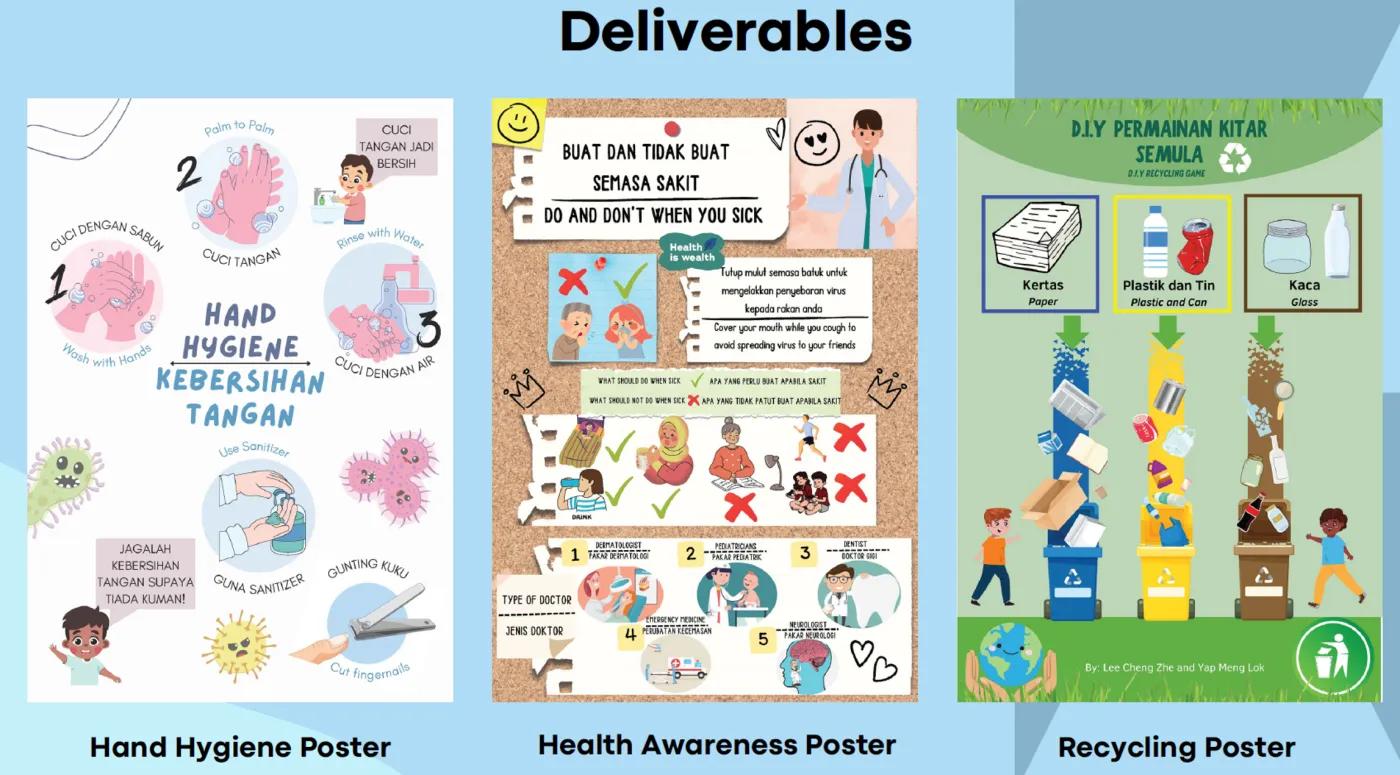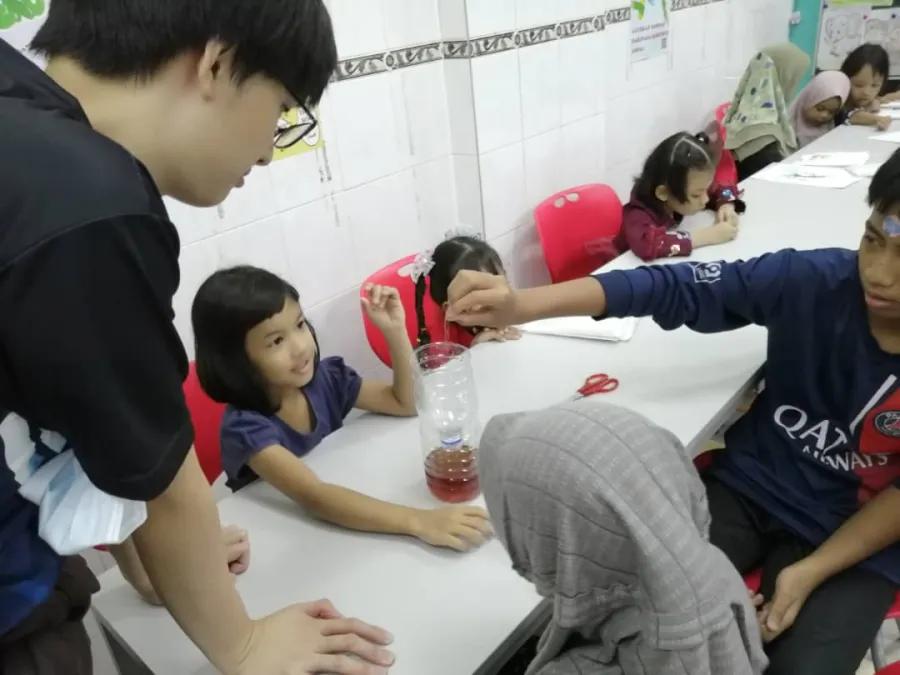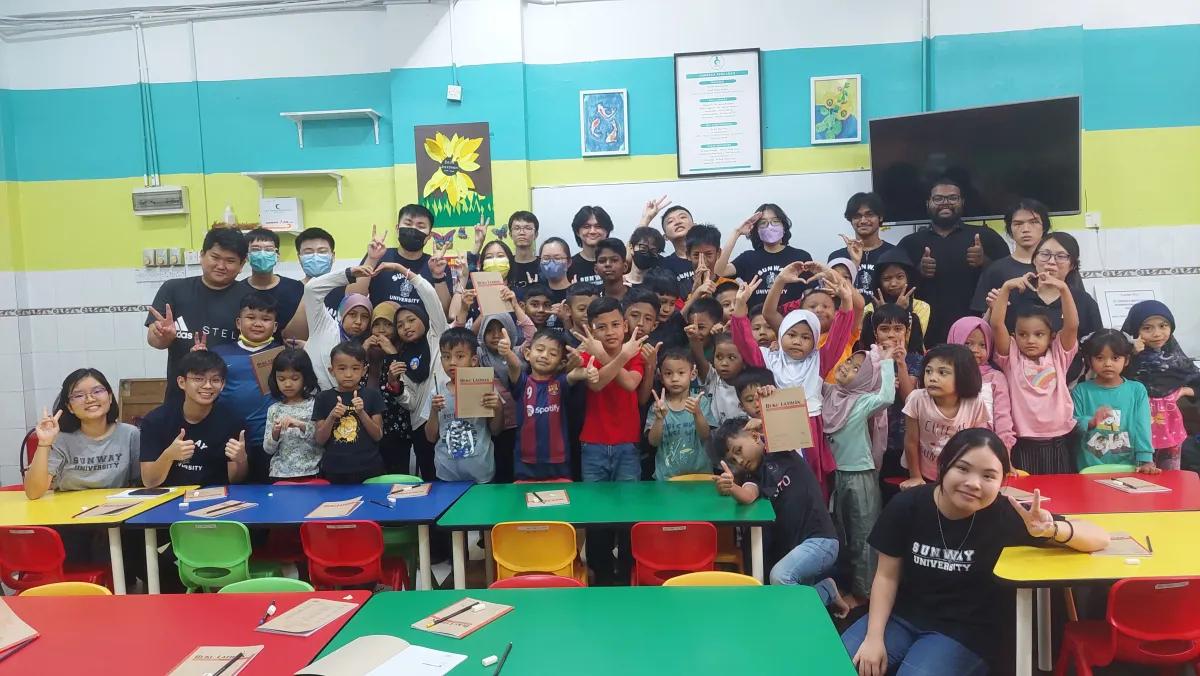Engineering Students Promote Planetary Health in Urban Poor Communities
The primary role of an engineer lies within conceptualising, planning, and executing projects that adhere to safety standards, regulatory requirements, and cost viability, ultimately serving the betterment of society. Real-life case studies and projects are invaluable tools for training engineering students to navigate complex challenges, enriching their learning and equipping them for societal demands.
In the January semester, I had the privilege of coordinating the "Community Service for Planetary Health" course for the undergraduates in the Department of Engineering. The course was conceptualised and offered by the Sunway Centre for Planetary Health, aiming to educate and raise awareness among the Sunway community about Planetary Health issues. We partnered with the Desa Mentari community, located in an urban-poor area located approximately 2 km from Sunway City. This community is facing multifaceted challenges including poverty, health, safety, and education.
Following an ideation workshop with community leaders, it became evident that education for the next generation was an issue which was close to their heart. In response to that, the engineering students decided to engage with the community through a two-days health awareness workshop at the Suriana Learning Center, catering to children aged 6 to 12. On day 1, the theme of the workshop was “Sihat Bersama Mentari”, aiming to educate the children on personal hygiene, environmental cleanliness and waste management. On the second day, the “Dengue Defender” workshop centered around strategies to combat dengue fever which was rising in the recent months within the community. Interactive activities, games, and informative posters were some tools developed by our students to convey the message. Practical lessons included creating mosquito traps using recyclable plastic bottles, sugar solutions and yeast, emphasising the impact individuals can make by utilising resources wisely.

The students' dedication to executing these workshops was commendable, demonstrating effective teamwork and project management skills despite challenges such as language barriers. Adapting to the need to use Bahasa Melayu in both preparing materials and conducting workshops demonstrates a high level of inclusivity and consideration for all participants, despite potential challenges for the international students. However, good team management was witnessed as everyone played crucial roles, assisting in different aspects to ensure the smooth function of the workshop.
The project management skills that students adopted from other subjects were demonstrated vividly. Prior to the event, the team visited the site, modified activities accordingly to suit the venue and age group and performed a few trial runs to ensure smooth flow. The groups have also conducted post workshop quizzes to gauge the children’s understanding and to evaluate the effectiveness of the activities. Their ability to adapt, strategise, and execute activities showcased a holistic problem-solving approach.

Engaging in community projects not only boosted students' motivation and interest in learning but also instilled a sense of purpose and responsibility. Their reflections underscored the tangible impact of their work and advocated for the continuity of such initiatives to cause lasting change. The students understand what they have contributed is significant, especially after knowing that more than half of the children depend solely on the learning center to receive their formal education. Looking ahead, students expressed enthusiasm for integrating engineering and digital concepts into future workshops, thereby enriching STEM education within the community.
These purpose-driven community initiatives aim not to leave a temporary mark, but instead aim for a long-lasting impact on the urban poor communities. They highlight the importance of a holistic approach to engineering education, producing engineers who are not just problem solvers but innovators capable of understanding and addressing the multidimensional challenges faced by society.
Dr Yoon Li Wan
School of Engineering and Technology
Email: @email




